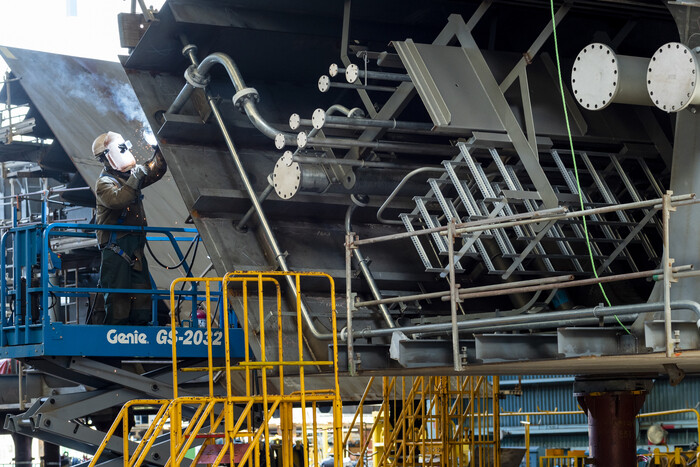
Ulsan, South Korea – In a strategic move to combat the persistent labor shortage plaguing its shipbuilding industry, South Korea’s Ministry of Employment and Labor, in partnership with the city of Ulsan, has unveiled a pilot training program aimed at equipping foreign workers with specialized shipbuilding skills. The initiative, announced on March 13th, will focus on training workers from Uzbekistan, providing them with the necessary expertise to fill critical roles in small and medium-sized shipbuilding enterprises (SMEs) located in Ulsan.
The shipbuilding sector, a cornerstone of South Korea’s economy, has been grappling with a severe lack of skilled labor, hindering its ability to meet growing global demand. This program is designed to address this challenge by providing comprehensive, hands-on training tailored to the specific needs of the industry.
The curriculum, developed in collaboration with local shipbuilding companies, comprises five key modules: heat insulation, lifting, scaffolding, painting, and electrical work. Each module spans three months, ensuring trainees receive thorough instruction and practical experience.
“This pilot project is a crucial step in ensuring the long-term sustainability of our shipbuilding industry,” stated a spokesperson for the Ministry of Employment and Labor. “By directly involving local governments and businesses in the training process, we can ensure that foreign workers are equipped with the exact skills needed on the ground.”
The program's rollout is structured in three phases:
Phase 1 (March 18th): Focuses on lifting, scaffolding, and painting.
Phase 2 (Third week of May): Concentrates on lifting.
Phase 3 (Fourth week of July): Covers all five modules.
Approximately 280 Uzbek trainees are expected to participate in the program throughout the year, with their entry into South Korea scheduled between July and December, contingent upon their successful completion of the training. They will be granted E-9 (non-professional employee) visas, allowing them to work in Ulsan’s shipbuilding SMEs.
The training will also include Korean language and cultural orientation to help the workers adapt quickly to the Korean workplace and society. Additionally, safety training will be a core component of each module, addressing the unique safety challenges of the shipbuilding environment.
Ulsan, a major hub for South Korea’s shipbuilding industry, is expected to benefit significantly from this initiative. Local businesses have expressed optimism about the program’s potential to alleviate their labor shortages and boost productivity.
“This program will not only help us fill critical positions but also contribute to the overall growth and competitiveness of our industry,” said a representative from a local shipbuilding SME.
The Ministry of Employment and Labor will closely monitor the program’s outcomes and assess its effectiveness. The results will inform future policy decisions regarding specialized human resource training for other sectors facing similar labor challenges. The success of this pilot project could pave the way for broader initiatives to attract and integrate foreign workers into South Korea’s key industries.
[Copyright (c) Global Economic Times. All Rights Reserved.]





























